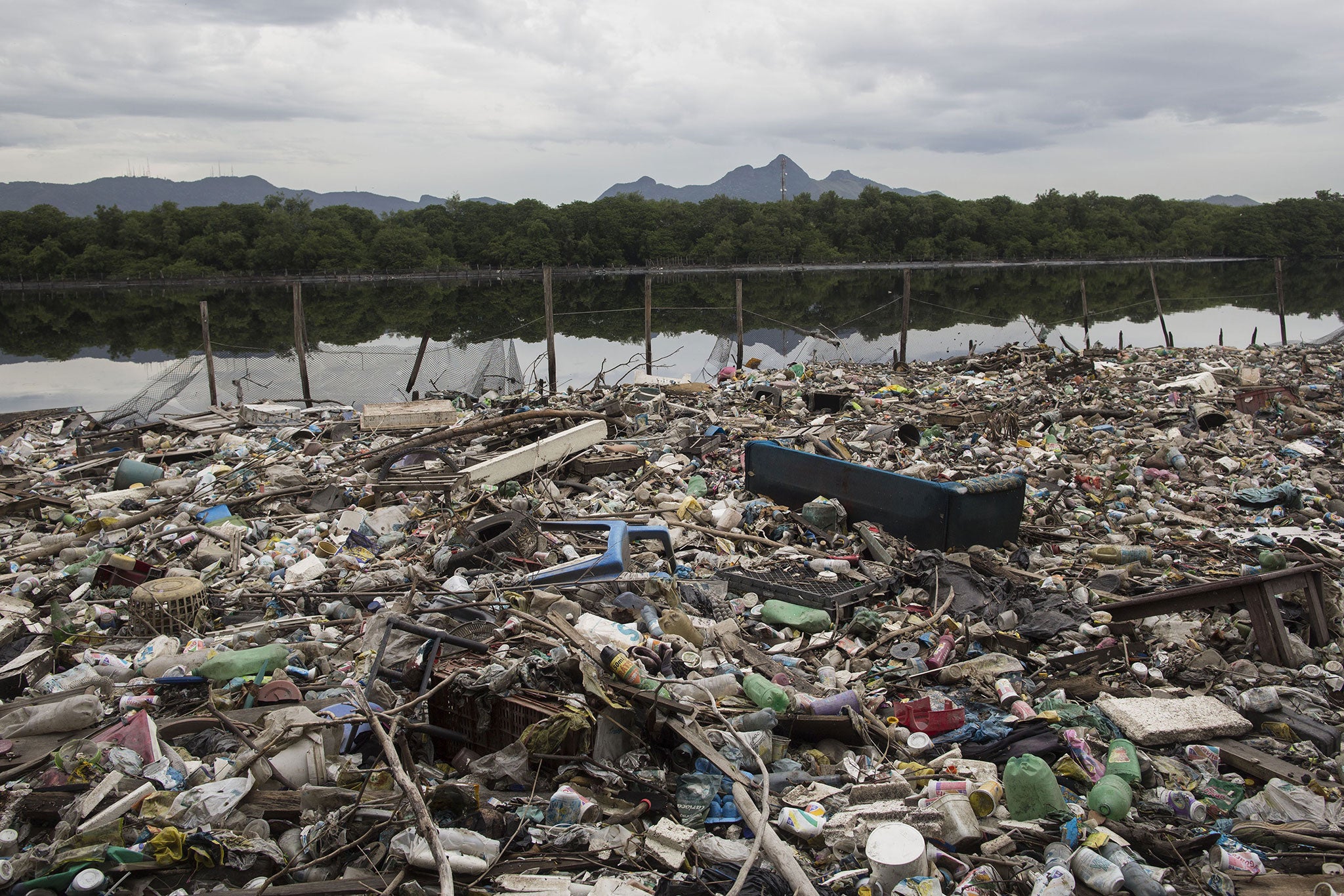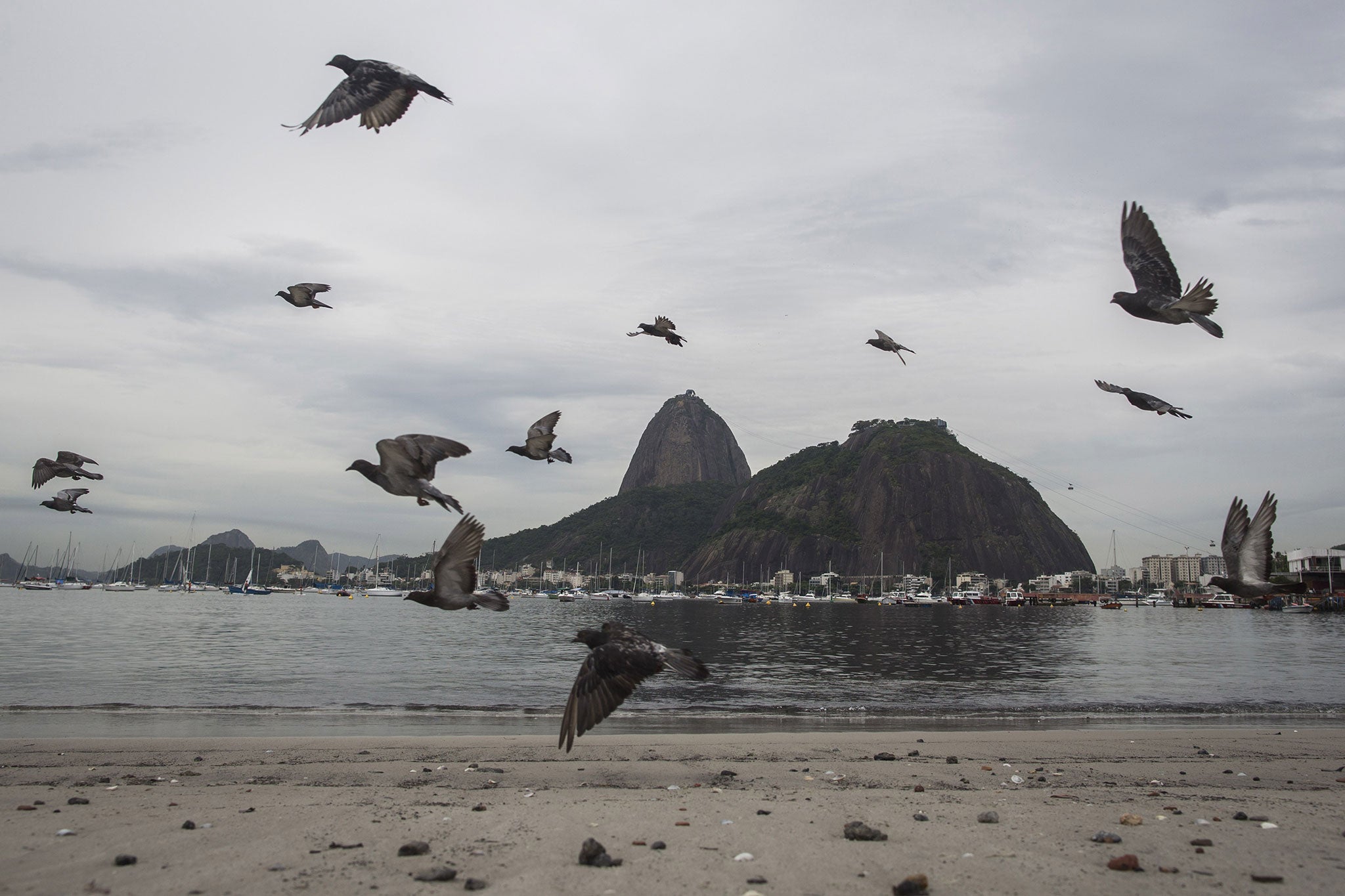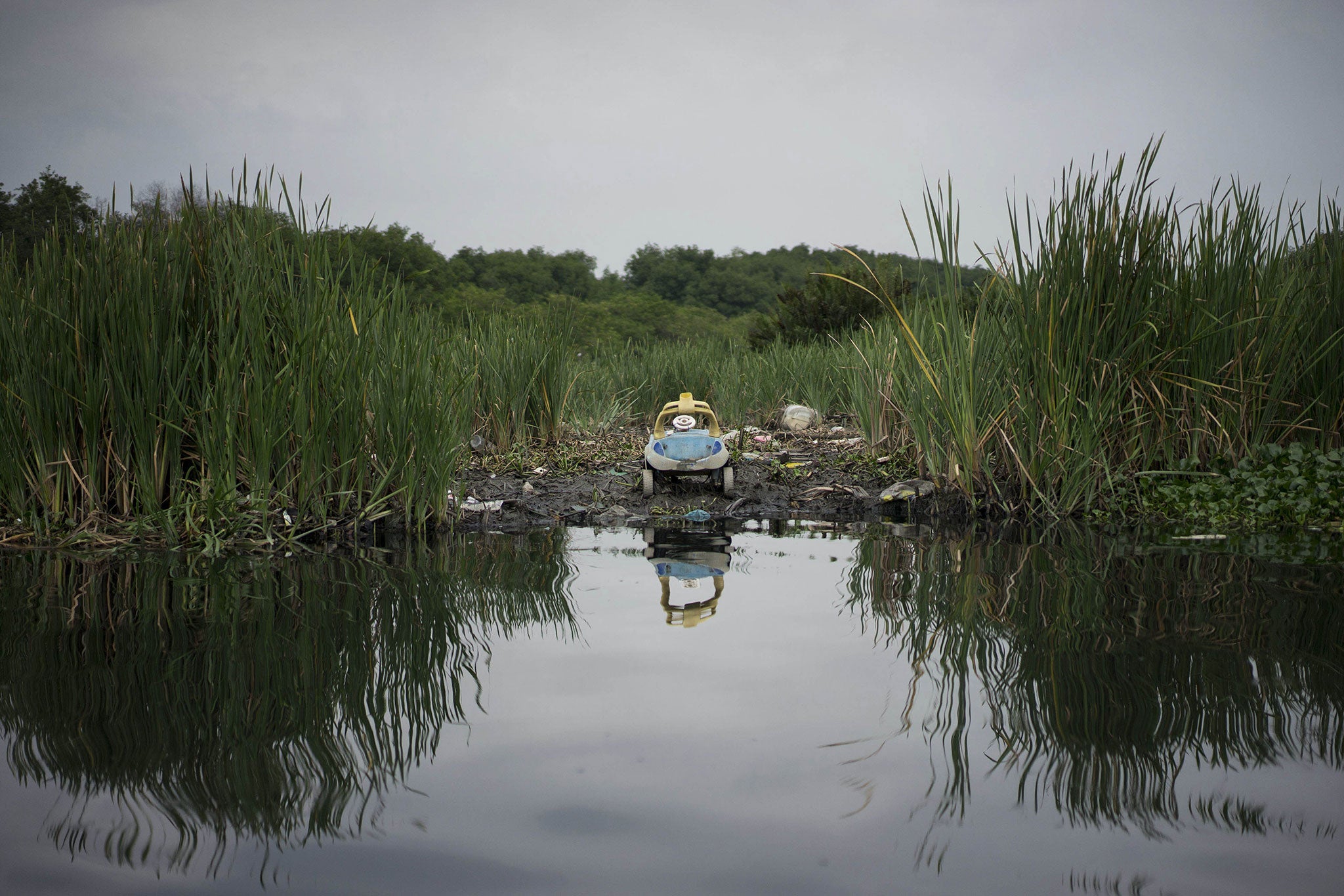Rio 2016 sailing water venues still full of sewage, rubbish and dead fish with less than 18 months to go
Rio officials remain confident the venue will be ready in time for games next year

Filthy waterways in Rio de Janeiro that will host Olympic distance swimming, sailing and rowing events are showing no signs of being cleared up with the completion less than a year and a half away.
Guanabuara Bay, where the sailing will be held, has been described by a number of Olympic competitors as the dirtiest place they have ever trained or competed.
The waterways in the city remain full of raw sewage, dead fish and rubbish despite the head of the International Olympic Committee inspection team, Nawal El Moutawakel, saying she was confident the venue will be ready in time for the games.
It is estimated that roughly 60 per cent of the city’s sewage remains untreated and simply is dumped into the waterways. Sailors have complained that they have had to dodge everything from dead animals and discarded sofas to plastic bags whilst practicing in the bay.

Nick Thompson, who hopes to sail for Team GB in 2016 said: “Water quality is my biggest personal concern. If you are sick during the Games, it’s game over.”
He says that he plans to take “probiotic supplements and fish oil to strengthen the gut” as he bids to avoid illness.
Stephen Park, British Sailing Team’s manager, said: “The sailors are on various supplements to mitigate against it, but we can’t do anything about the water quality.”
It is estimated that between approximately 80 and 100 tonnes of rubbish are washed into the bay every day yet the government only manages to clear around 400 tonnes per month.

In February, tens of thousands of dead fish were found floating in the bay whilst in December a drug resistant ‘super-bacteria,’ generally seen only in hospitals, was discovered in the water.
Fifteen cities share the bay’s shoreline and it is estimated that the waste of eight million people is still being untreated as it flows into the water, producing over 18,000 litres of sewage a second.
It is estimated that the fecal matter in the city’s water system can reach more than 200 times that of the limit declared legal in the United States.
Mario Andrada, Rio 2016 Director of Communications admitted: “There is a huge problem with garbage.”
However he made assurances that the water “will be safe for the Olympics.”
The Olympic Games will begin on 5 August next year and the Paralympics will start on 7 September.
Join our commenting forum
Join thought-provoking conversations, follow other Independent readers and see their replies
Comments